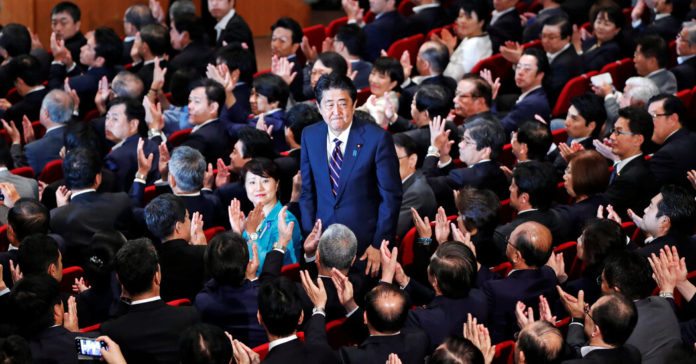Shinzo Abe, the longest-serving Japanese prime minister, who made it his political mission to vanquish his country’s wartime ghosts but fell short of his goal of restoring Japan as a normalized military power, was assassinated on Friday in the city of Nara, Japan. He was 67.
Mr. Abe, the scion of a staunchly nationalist family of leading politicians, had the longest uninterrupted tenure as prime minister in Japanese history, nearly eight years beginning in 2012. He had previously served a year in an earlier stint as the country’s leader.
His long run delivered only partial victories on his two primary ambitions: to unfetter Japan’s military after decades of postwar pacifism and to jump-start and overhaul its economy. He resigned as prime minister in August 2020, a year before his term was set to end, citing ill health.
One of his most significant moves came in 2015, when, in the face of intense opposition, he pushed through legislation that authorized overseas combat missions alongside allied troops in the name of “collective self-defense.” But he failed in his long-held dream of revising the war-renouncing clause of Japan’s Constitution, put in place by American occupiers after World War II.
Mr. Abe’s economic program, known as Abenomics, involved cheap cash, government spending on stimulus projects that expanded the country’s debt and attempts at corporate deregulation. The combination delivered results in the early years of his term, lifting the economy out of an unrelenting malaise.
A key factor in Mr. Abe’s economic platform was to draw more women into the paid work force, to counterbalance a declining and aging population. But the promise of drastically raising the proportion of women in management and in government did not come to fruition.
On the international stage, Mr. Abe was one of the few world leaders to maintain a consistently close relationship with President Donald J. Trump. And after years of a chilly relationship with China, Mr. Abe tried to usher in a warmer era, making the first visit to Beijing by a Japanese prime minister in seven years when he met with President Xi Jinping in 2018.
While Mr. Abe worked to cultivate diplomatic and trade relations around the world, he never lost sight of his nationalist agenda at home. A year after taking office in 2012, he visited Yasukuni Shrine, which honors Japan’s war dead — including war criminals from the World War II era. Although he largely avoided further visits, he resisted calls for Japan to more fully apologize for its wartime atrocities, a sore point in Korea and China.
He reiterated support for past official statements of remorse, but also seemed to suggest that Japan had done enough. “We must not let our children, grandchildren and even further generations to come, who have nothing to do with that war, be predestined to apologize,” he said in 2015.
Shinzo Abe was born on Sept. 21, 1954, in Tokyo to Shintaro and Yoko Abe. His mother was the daughter of Nobusuke Kishi, prime minister from 1957 to 1960, who had been accused of war crimes by the occupying Americans, but who was ultimately released from prison without appearing before the Allied war crimes tribunal.
Mr. Abe’s father was also a politician, and served as foreign minister.
Source : Nytimes












